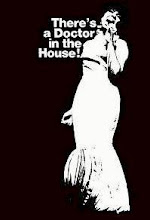Calling on Mankind to abandon nuclear energy
 |
| III A.M. Records LP # 1022 |
Mitty Lene Collier from Birmingham, Alabama, was the seventh of seven children - »the seventh daughter«, which also features in a few blues songs, albeit less prominently than »the seventh son« ... Robert Pruter, the authority on the Chicago music scene, remarked that »she must be counted among the best soul singers of all time.« (Robert Pruter, Chicago Soul, Urbana–Chicago 1991, p. 102). She was one of the many soul singers who embarked on a second career in the 1970s when they turned to gospel music and began, in many cases, to be active in church.
And Rev. Collier was especially active in this regard: in 1983 she had the idea to install the Bible Study Telephone Prayer Line (BSTPL), meant to enable Bible study via telecommunication ... that's how things were in the pre-Facebook era! In 1989 she became a pastor in the Chicago More Like Christ Christian Fellowship in Chicago (today part of the New Zion Christian Fellowship). Mitty Collier was awarded a B.A. »in Evangelism« and a honorary Ph.D. in theology (Honorary Doctor of Divinity Degree). And nowadays pastor Mitty Collier is also present on FB ...
Mitty Collier came first to Chicago in the summer of '59 to visit her brother who was living there at the time. In Chicago she met her old French teacher from Birmingham who took care of her - not by giving her further lessons in French, but by inscribing her at several local talent contests! In one of these shows, Al Benson's »Talent Show« in the venerable Regal Theater, Mitty made the first place for 6 weeks in a row (that's how she remembers it, see Pruter, Chicago Soul, p. 103). What then hap- pened is history: Chess Records soon had her name in the notebook and eventually gave her a contract in 1960. Her first single saw the light of the day in 1961, and she remained with Chess until 1968. She had her first hit with »Part Time Love« in summer 1963 (r&b # 20), and according to the Billboard charts her biggest success came with »Sharing You« in 1966 (r&b # 10). However, her best-known tune of the 1960s remains »I Had A Talk With My Man« (1964) which hit # 03 on the Cashbox r&b charts. Much sought after until today is her 1965 Chess-album »Shades Of A Genius«. Her last recordings for Chess were made in the Fame-Studios in Muscle Shoals, Alabama, a place that saw the likes of Etta James and Aretha Franklin coming and going in those days. After her contract with Chess had ended, Mitty recorded some songs for William Bell's Peachtree Label in Atlanta (1969–70), yet without having the same success as before.
When she was still singing »secular« soul you could note a subtle but persistent undercurrent of gospel. Suffice it to say that the best-known song »I Had A Talk With My Man« was adapted from »I Had A Talk With God (Last Night)« by James Cleveland. But her return to gospel in 1972 was caused by a very personal experience. In October 1971, her voice started to fail and she faced the danger of losing it completely. The sleeve notes by Evelyn Spotser tell us what happened then: »During this time prayer and faith in the Lord were the keys to the return of this fine, glorious voice that you will now hear. Although she attended a physician, it is quite clear to her that it was the Lord who gave her back the power to sing again.« This experience and Mitty's recovery led to her conversion as a reborn Christian, and ultimately to her first gospel-LP of 1972: »The Warning« (III A.M. Record Company # 1022). The majority of songs on this album were written by Mitty together with arrangeur und pianist Charles Pike, they are therefore Collier-originals. The album was recorded in 1972 at the Universal Studio in Chicago.
You can hear two songs from this album in the following: »You Cannot Serve Two Masters« and »I Can See Clearly Right Now«. The first song, »You Cannot Serve Two Masters«, is a gospel-blues-ballad, referring to a passage in Matthew (6:24): »No man can serve two masters: for either he will hate the one, and love the other; or else he will hold to the one, and despise the other. You cannot serve God and mammon«. As in other songs Mitty here expresses her scorn at those »so-called Christians« who are unwilling to chose between God and Mammon. The songs says, »just like the rooster sitting on the fence, you find so-called Christians living just like this: with their heads on one side, and their tails on the other«. The second song, »I Can See Clearly Right Now«, is still deeper in the gospel-blues-mould, actually a rare and beautiful example of its kind. As to its message we have here a typical »conversion song« in which the rebirth in faith is likened to a recovery from blindness: »Touch me, Lord, open my eyes so I can see!« Certainly, you don't have to be a Christian to admit that too many are still struck with blindness in our days!
Mitty Collier:
»You Cannot Serve Two Masters« / »I Can See Clearly Right Now« from the LP »The Warning« (1972):
»You Cannot Serve Two Masters« / »I Can See Clearly Right Now« from the LP »The Warning« (1972):














No comments:
Post a Comment